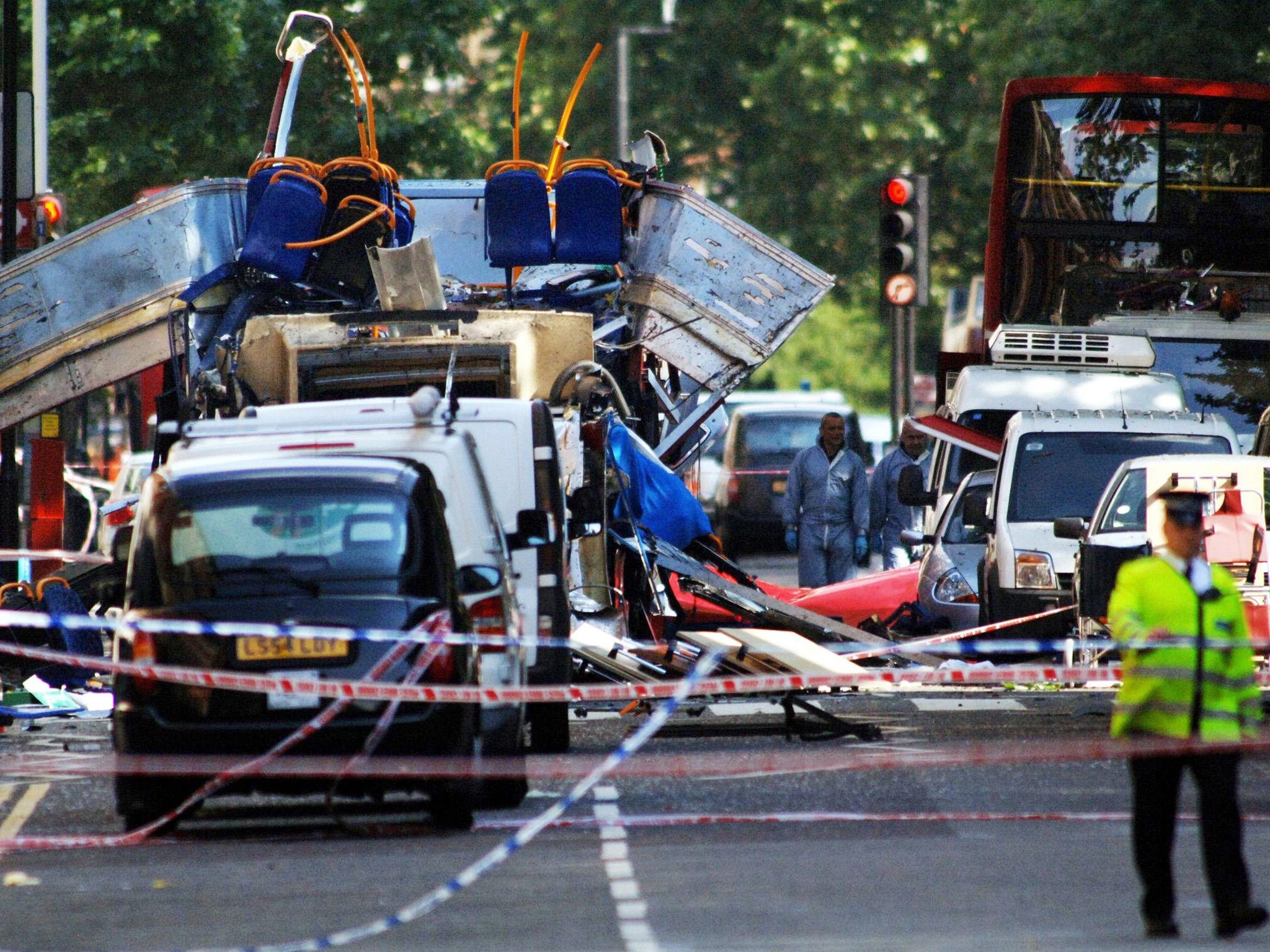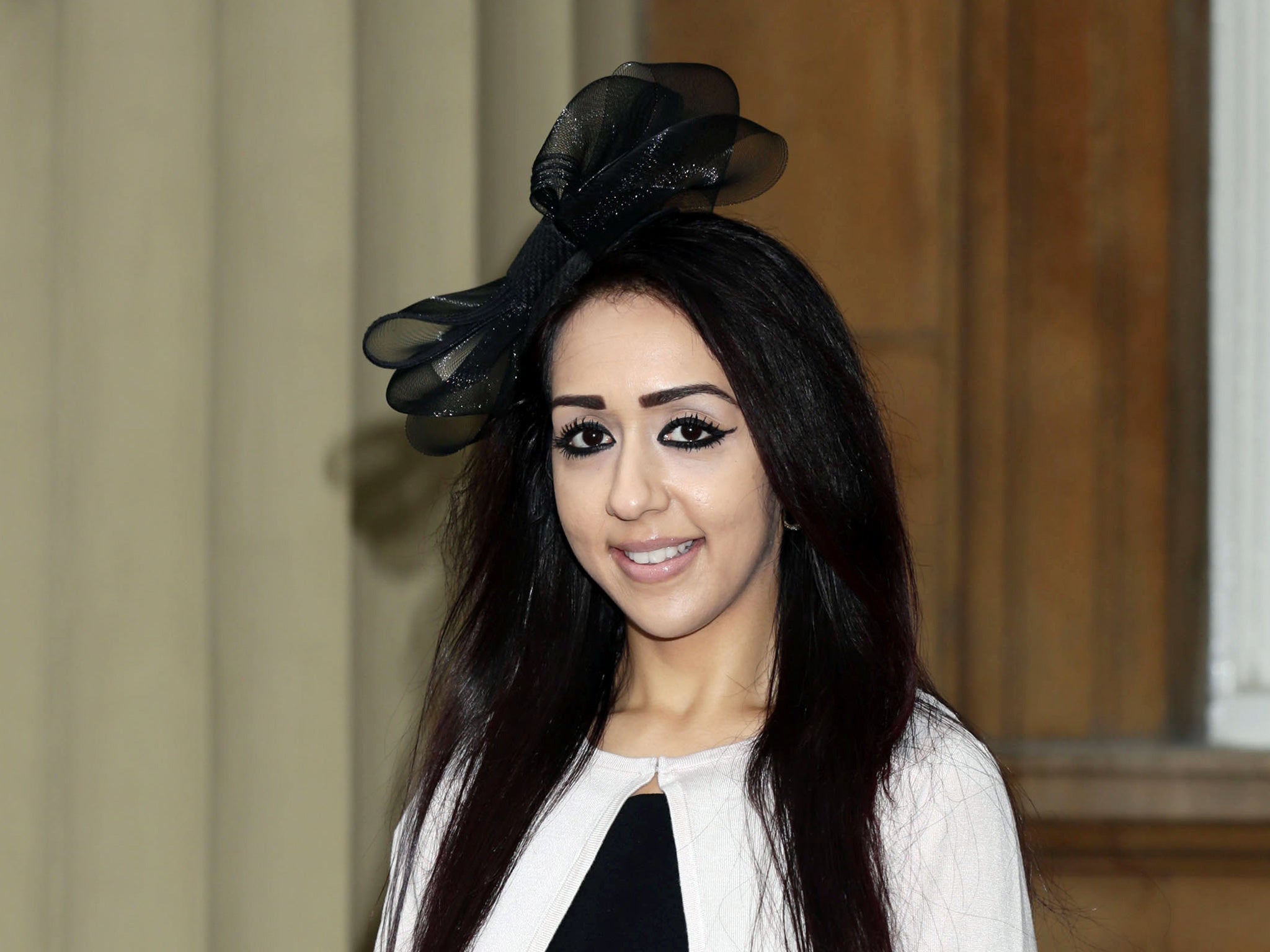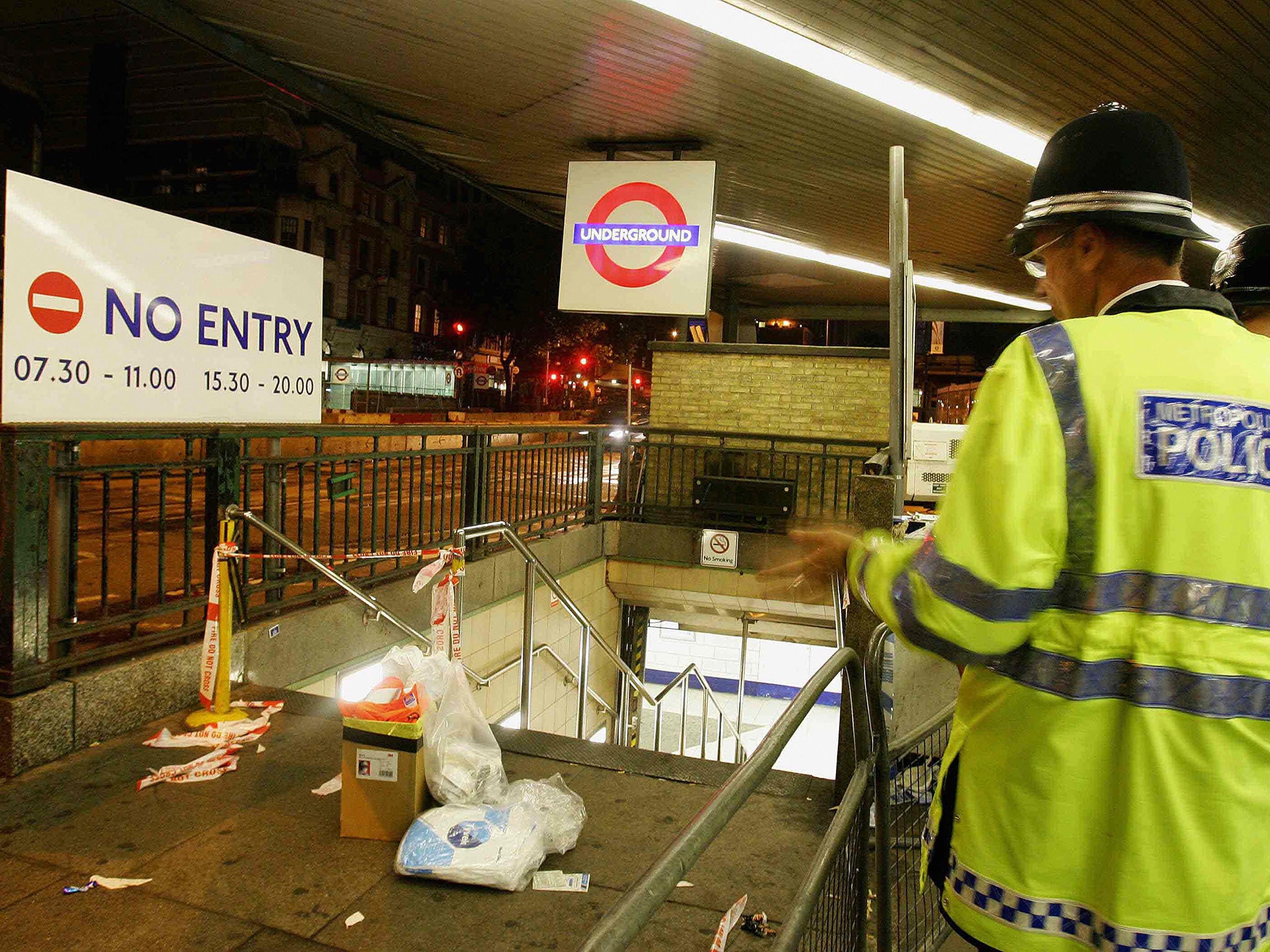Only Muslim survivor of 7/7 bombings says Britain must make stand against Islamophobia
Sajda Mughal has suffered death threats and online abuse because of her faith

Your support helps us to tell the story
From reproductive rights to climate change to Big Tech, The Independent is on the ground when the story is developing. Whether it's investigating the financials of Elon Musk's pro-Trump PAC or producing our latest documentary, 'The A Word', which shines a light on the American women fighting for reproductive rights, we know how important it is to parse out the facts from the messaging.
At such a critical moment in US history, we need reporters on the ground. Your donation allows us to keep sending journalists to speak to both sides of the story.
The Independent is trusted by Americans across the entire political spectrum. And unlike many other quality news outlets, we choose not to lock Americans out of our reporting and analysis with paywalls. We believe quality journalism should be available to everyone, paid for by those who can afford it.
Your support makes all the difference.The only Muslim survivor of the 7/7 London bombings has urged the country to stand together against the growing threat of Islamophobia the way it did against terrorism a decade ago.
Sajda Mughal said she has suffered death threats and online abuse because of her faith since surviving the UK's first suicide bombings at the age of 22, and says her experience is increasingly echoed by friends, family and colleagues.
As the tenth anniversary of the terrorist attack approaches and the country remembers the harrowing event, she said the pain, flashbacks and nightmares she regularly experiences have intensified.

Mrs Mughal, now a mother-of-two from Wood Green, north London, still vividly remembers the searing sense of relief she felt when a distant voice called "it's police, we're coming to get you" as she cowered among the debris of a derailed Tube carriage "preparing myself for death".
As she recalled the morning she took the same Piccadilly Line service as 19-year-old suicide bomber Germaine Lindsay towards Russell Square, she said: "I still remember 7/7 like it was yesterday.
"It was a really loud noise, the loudest noise I've ever experienced.
"The train came to a sudden standstill. It was rush-hour morning so obviously a packed carriage.
"People were falling to the ground, lights went out instantly, black smoke immediately started to appear in the carriage.
"I thought instantly we've derailed. I never thought anything else.
"My next thought was that the train leaving King's Cross is so near it will hit us and we'll all burn to death.

"All around me people were literally pleading for their lives, crying, screaming, people started to then kick, bang and punch the doors. I remember people attending to those who needed help, but I went into shock.
"I remained so still and didn't want to talk to anyone. I genuinely thought that was the day I was going to die so I remember thinking that I hadn't said goodbye to my loved ones, I hadn't got married, I hadn't had children or seen the world. Then I started remembering my childhood, literally I was preparing myself for death.
"That was the day I was going to die."
Instead, it was the day that changed her life.
After surviving the attack which killed 52 people, she turned her back on her City job and joined the north London-based Jan Trust to launch an anti-radicalisation awareness programme aimed at Muslim mothers.
But while she has witnessed the positive affects her work has had on tackling extremism, the campaigner said she has also seen evidence that Islamophobia is on the rise.
First-hand accounts of attacks on women wearing with the veil, vandalism of homes, discrimination in applying for jobs and bullying in schools, as well as social media abuse such as the recently trending hashtag "Kill All Muslims", are among regular reports.
She said: "When we speak to young Muslims they tell us they are experiencing a rise in Islamophobia and they are feeling disconnected from society because of that.
"Extremism to some degree is fuelled by Islamophobia, young Muslims are telling us first hand they have experienced it or their family has and that is making them feel alienated and that leaves some vulnerable to radicalisation.
"What was poignant for me and what stood out (after 7/7) was how Londoners came together to help everyone that day, regardless of your background, and that is what I would like to see happen today to tackle the issues of extremism and Islamophobia we are facing."
Her work with the Jan Trust includes what she believe is the only programme in the world empowering Muslim mothers by teaching them how to use the internet, the dangers of online radicalisation and how to safeguard their children - an initiative she claims has directly prevented teenagers fleeing to Syria.
"Quite often Islamophobia is down to ignorance, so it's about education. It's also about people talking to Muslims and finding out more and having an open dialogue to overcome those misconceptions.
"As we've moved on over the years, we need to be aware, including young people, about what happened (on 7/7) and what is happening in society now with some people going over to Syria to join Isis, as well as the rise in Islamophobia, so we can educate and allow those mindsets to be changed.
"We need to be raising the issue of Islamophobia and that can happen at a young age."
Press Association
Join our commenting forum
Join thought-provoking conversations, follow other Independent readers and see their replies
Comments